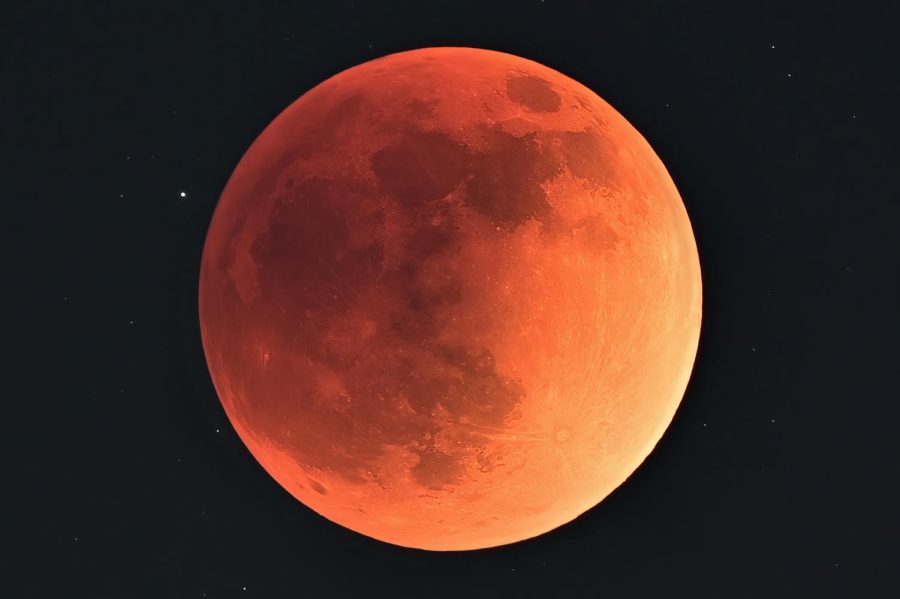Last Total Lunar Eclipse for the Next 3 Years Happened on Nov. 8
November 11, 2022
Unless you were up at 3 a.m. on Nov. 8, you missed the last total lunar eclipse until 2025. Early in the morning on Nov. 8, the moon, the sun and the earth lined up to form a total lunar eclipse. A lunar eclipse is different from a solar eclipse. The difference between the two is the position of the moon. In a lunar eclipse, the earth blocks the sun from the moon making it turn reddish. A solar eclipse is when the moon goes in front of the sun blocking light to certain parts of the earth. This eclipse happened early in the morning on Nov. 8 at around 3 a.m. Anyone who lives in the Western Hemisphere got to see this lunar eclipse because it was nighttime for us. A lunar eclipse happens when the earth’s shadow covers the moon, causing it to turn a bright reddish orange.
According to Times Magazine, “It is only about once every year and a half that the three bodies[the moon, the sun and the earth] line up perfectly to make an eclipse happen.”
According to NASA, a lunar eclipse happens when the earth’s shadow covers the moon, turning it reddish, which people refer to as a “Blood Moon.” This rare event should happen every month, but it does not because of the tilt on the moon’s rotation around the earth causing it to be every year and a half. The next lunar eclipse will be in three years, and the next solar eclipse will be in one year and a half. The reason why we have to wait a year and a half for the next solar eclipse/Lunar eclipse is because of the slight tilt in the moon’s orbit. The moon is on a five-degree tilt causing the moon to not be fully covered by the earth, which causes partial Solar/Lunar eclipses. The difference between a partial and total eclipse is that only a portion of the moon or earth is covered.
According to Times Magazine, “After this coming eclipse, a three-year wait for the next one will begin.” If you missed the Lunar eclipse on Nov. 8, you won’t be able to see another eclipse until 2025. So make sure you don’t miss the next.

